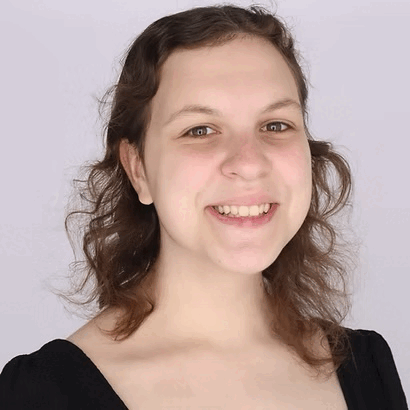Human Epoch: Mapping Heritage
The Basics
🤝 The Team
A group of 9 Purdue students at various points within the John Martinson Honors program collaborated to produce a U.S. Department of State project focusing on the U.S. Chancery in Rome.
We predominantly analyzed documents directly from UNESCO as well as the U.S. Department of State, though would seek some guidence from staff currently serving the facility.
🚀 Research Outcomes- An interactive ArcGIS StoryMap
- A Diplomacy Lab presentation in Washington, D.C.
The project took place from January to May 2024, with its success inspiring future Diplomacy Lab projects at Purdue.
🙋 My Role- Secondary Research
- Webpage Wireframing
- Content Creation
- Presenter
Project Overview
The project involved researching and analyzing the U.S. Chancery in Rome, exploring its history and its designation as a UNESCO World Heritage Site. Initiated by the U.S. Department of State, the project was the outcome of a nationwide bid process. It brought together students from diverse disciplines at Purdue University to collaborate on an ArcGIS StoryMap.
What is Diplomacy Lab?
Diplomacy Lab engages the American public in the work of the State Department to address complex global challenges by broadening the State Department’s research base. Diplomacy Lab harnesses the expertise and fresh perspectives of students and faculty members across the nation to research key foreign policy topics. By guiding student teams through real-world challenges identified by the State Department, the initiative provides policymakers with diverse perspectives and practical research solutions to inform their decision-making process.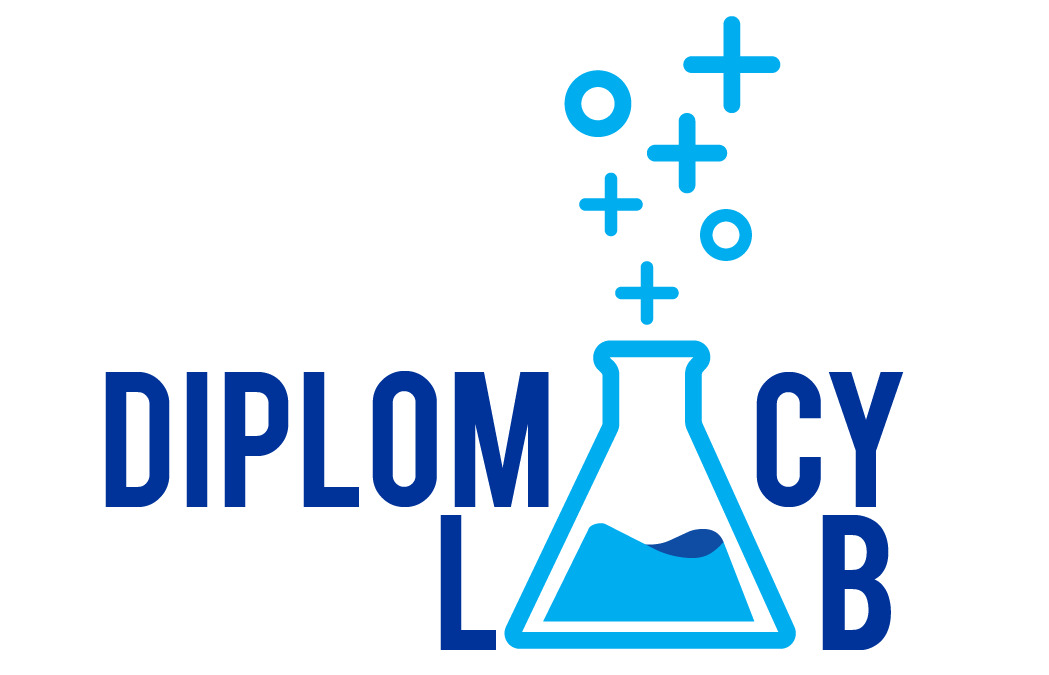
What is a Chancery?
A chancery, when used in the context of diplomatic missions, refers specifically to the building that houses said mission in their host country.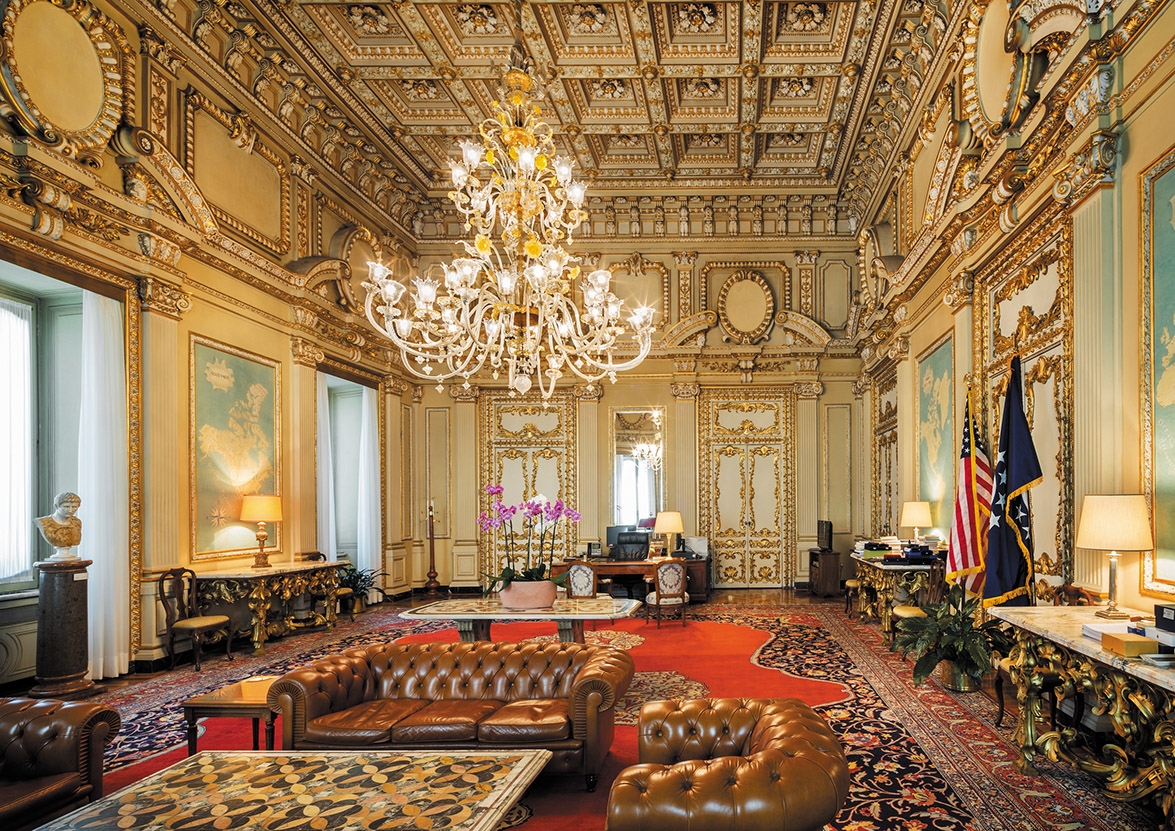
The Research Process
During the Spring of 2024, I collaborated with a team of nine students within the John Martinson Honors College to research and create an ArcGIS StoryMap focusing on the U.S. Chancery in Rome and its role within a UNESCO World Heritage site. The process would include researching primary documentation of the facility, including historic structure reports in addition to Italian legislation to gain a better understanding of the chancery. From there, we would break out understandings into multiple sections, dividing our given understandings and organizing them into corresponding sections. The sections include: an introduction to the project and its context, the historical background of the site, the architectural timeline detailing its evolution from a palace to a government building, its contemporary significance, and the heritage legislation that governs the facility’s daily operations.
My primary contribution was to the architectural timeline section, where we outlined the overall development of the facility and explored the history of specific rooms within the building. Additionally, I assisted with the contemporary context section, contributing through research rather than direct content creation for the report.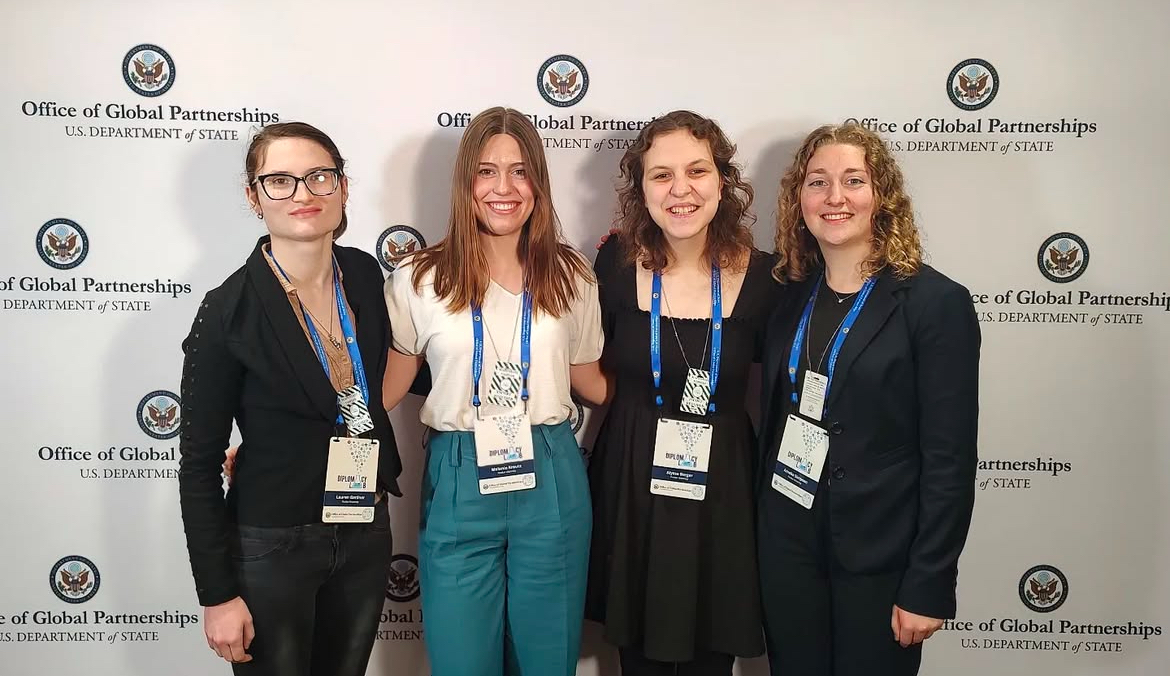
The Presentation
Sponsored by Purdue University’s Public Policy Research Institute, I had the opportunity to present our StoryMap alongside three peers in Washington, D.C. The presentation took place at the U.S. Department of State’s Diplomacy Lab Fair, an event showcasing university projects from across the nation on a wide range of topics. The fair works to demonstrate the work done across the semester on a wide range of topics, all designed to better inform the general public and future policy makers alike. Notably, this was the first Diplomacy Lab Fair to be held since the COVID-19 shutdown in 2020.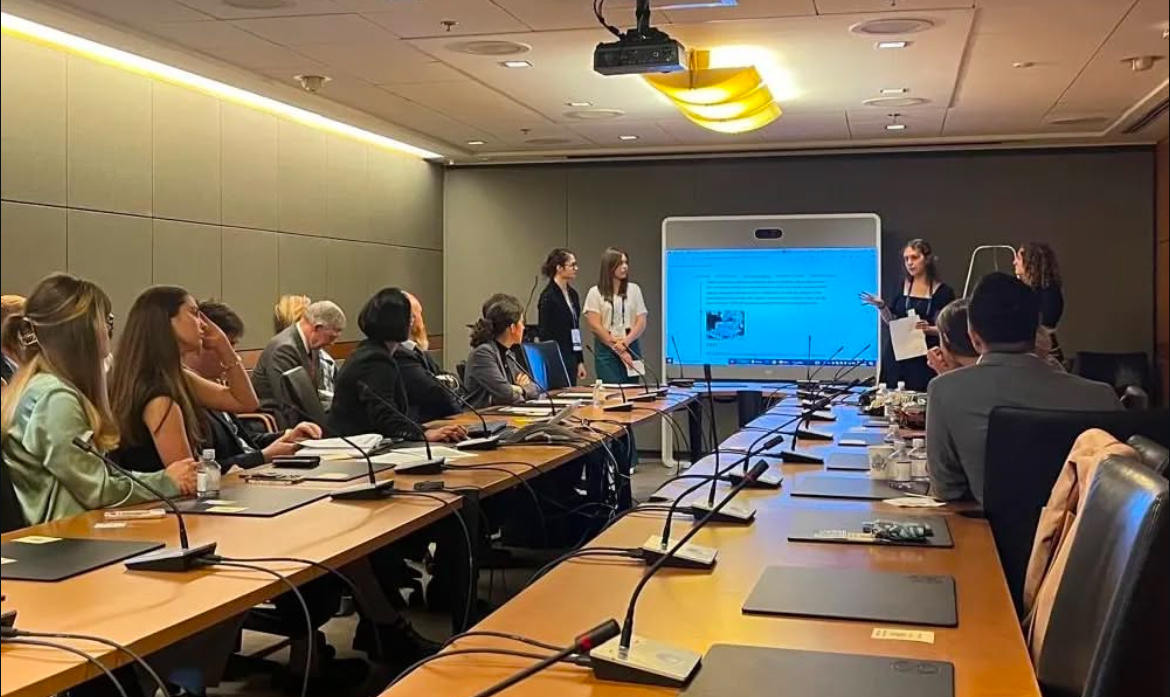
Self-Reflection
This project was my first opportunity to research under individual faculty members within the John Martinson Honors College. Not being specific to my major, this project allowed me to step outside my comfort zone and work toward real-world contributions to be analyzed by diverse audiences.
The Inaccessible Details: While we benefited significantly from UNESCO and State Department-specific resources, much of the available information remained inaccessible due to language and cost barriers. Although we take pride in the work we accomplished with the resources at hand, I am left reflecting on the details left unexplored because of these limitations. This disconnect underscores the broader purpose of the Diplomacy Lab: to address topics often overlooked in discussions surrounding the U.S. Department of State. If I were to repeat the project, I would aim to include team members with greater familiarity with the Italian government and language. Additionally, I would seek funding to access promising research papers that were otherwise unavailable due to language barriers or financial constraints.
Imposter Syndrome: While the project felt profound within the classroom and the confines of Purdue University, presenting it in Washington, D.C., alongside representatives from so many universities introduced a sense of self-doubt and displacement. The scope of the Diplomacy Lab spans from undergraduate to Ph.D. students, and presenting our work before experts and government fellows created a certain sense of isolation. However, the experience was equally empowering. The opportunity to present and publish alongside students further along in their academic careers highlighted the dedication and impact of our work. It underscored the impression our efforts leave not only on Purdue University but also on the U.S. Department of State. The project, though just one of many showcased at the Spring Diplomacy Lab, fills me with pride as I reflect on the work accomplished, even as a younger and less experienced participant compared to many of the attendees. The praise and constructive feedback received were invaluable, not only in finalizing the StoryMap but also in shaping and refining my own future projects.
Overall, I reflect fondly on Palazzos, Perimeters, and Preserving Pasts for all it has contributed to my academic journey. Having the opportunity to publish and contribute to a project of such significance as a freshman in college has been invaluable, boosting my confidence and fueling my excitement for the professional world. Although this project differs from my typical work as a UX Designer and Researcher, the Diplomacy Lab and its mission resonate deeply with my passion for shedding light on overlooked topics and supporting underserved communities.
